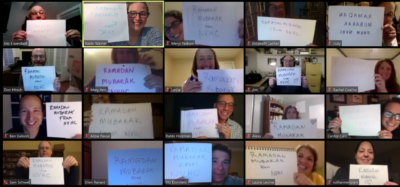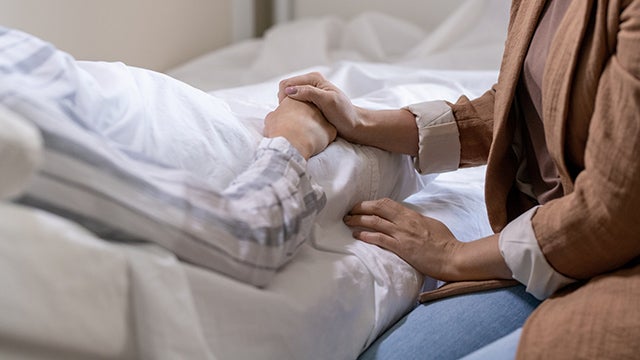What makes the Covid-19 pandemic so threatening to civil society is the necessity of social distancing. In his book, Alienated America, Timothy Carney identifies the social, medical, economic, and cultural declines that emerge in de-institutionalized geographies and shows how the rise of centralized distant power (big business and big government) accelerates those trends. Our current crisis demands that we stay away from our local institutions and that we focus attention on the directions coming from distant public health authorities, both trends that bode ill for communal well-being.
Simultaneously, the historical and sociological literature on natural disasters and wartimes indicate the likelihood of grassroots waves of activism: average citizens creating spontaneous soup kitchens, the Cajun Navy patrolling flooded neighborhoods, civic associations formed in the Tubes during the Blitz. The fear and uncertainty endemic to crisis generate a hunger for the kinds of social connection and mutual responsibility found in communal action. The difference with Covid-19 is that we are stuck at home.
In order to counter the trends that undermine social cohesion, we need ways for people to take action together. If we are to adhere to public health guidance, only a tiny number of people will be able to volunteer in food pantries and meal delivery programs.
Even when our current “social distancing” can be relaxed, segments of society will remain isolated and future waves will separate us again. We need ways to take collective action virtually.
Interfaith institutional relationships offer a mechanism for collective action. Every clergy-person in America has a handful, or bushelful, of local relationships with the leaders of other faith institutions. Pastors know priests who know rabbis who know imams. We lead collections of the exact people who are the joiners, donors, leaders, and volunteers that make local communities function. This moment calls upon us to bring our flocks together virtually, to create solidarity online, and to shape narratives of communal hope.

Congregants from the Northern Virginia Hebrew Congregation (NVHC) virtually wish a Ramadan Mubarak to worshippers from the All Dulles Area Muslim Society, who normally use the NVHC space for their Friday prayers.
This pandemic raises moral and social questions that will strain our society. To name a few: Do we prioritize public health or economic well-being? Do we allow capitalism to control the flow of medical resources, enriching a tiny few and impoverishing the masses? Do we address existing inequities of social safety along lines of race, ethnicity, and class? What is the right balance of federal and state power? Do the responsibilities of citizenship demand we act on behalf of those who lack citizenship? How on earth do we pay for all of this? Technology vs. privacy? The questions are inherently complicated and difficult and none of us have personal experience to call upon for answers.
In this environment, political actors will weaponize the crisis using all the tools and technology at their disposal, fueled by tsunamis of electoral campaign funds. We were already polarized before the pandemic, and our political system was not exactly adept at complicated questions or compromise solutions before all of this. If we do nothing, Covid-19 will only accelerate vitriol, division, and paralysis.
While this moment offers plenty of opportunity for theological questioning and interfaith “dialog” in response, I propose something different.
We use the inspirational messages of this season—the liberation narrative of Passover, the resurrection message of Easter, the communal and individual introspection of Ramadan—as springboards to conversation about local responsibility and shared leadership.
We respond to the impossible decisions of this moment with grace, courage, love, hope, intellectual rigor, inherited morality, and rooted constitutionalism. This is the time for us to strengthen faith institutions by elevating their roles as the pillars of civil society. The way to do that is to get our people talking to each other.
To learn more, join IAP, Rabbi Holzman, and Pastor Bob Roberts for a webinar on Thursday, May 14th. Register for the event here.
Rabbi Michael G. Holzman is the spiritual leader at the Northern Virginia Hebrew Congregation.
The Inclusive America Project is committed to advancing a thriving U.S. Religious Pluralism and believes an important step to achieving this goal is sharing diverse voices and ideas across our platforms. In this spirit, we are pleased to publish blogs written by external authors working in and around the space.
The views and opinions expressed in this blog do not necessarily reflect those of the Aspen Institute.


